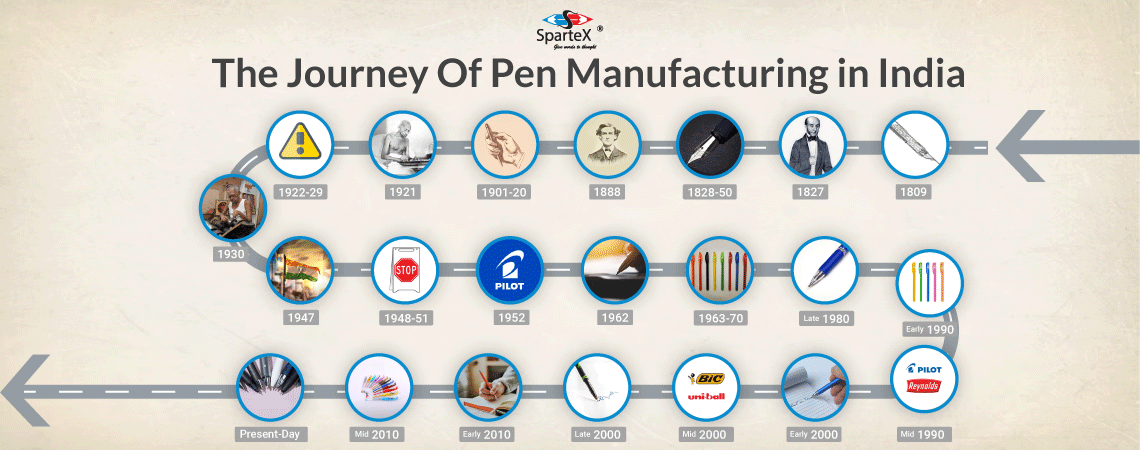Folsch’s 1809 patent for the fountain pen in England sparked a global evolution in writing instruments. India, with its rich literary heritage, quickly embraced this innovation. Initially imported as luxuries, fountain pens led to domestic manufacturing. Over time, technological advancements diversified the market, with ballpoint and rollerball pens entering the scene. Today, India’s pen manufacturing industry is thriving and has shifted from being an importer to a global exporter, with its constant drive for innovation in pen technology.
1809
Patent for the Fountain Pen
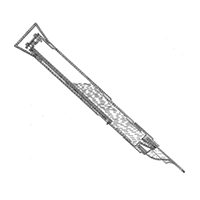
Bartholomew Folsch, a renowned inventor, successfully obtained a patent in England for a revolutionary pen design featuring an innovative ink reservoir system. This invention marked a significant milestone in the evolution of writing instruments
1827
Fountain Pen with Ink Reservoir
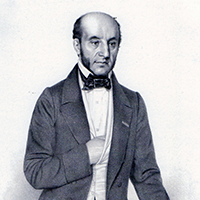
Petrache Poenaru, a Romanian inventor, is credited with creating the fountain pen, which uses a quill as an ink reservoir. The French Government patented his design
1828-1850
Fountain Pen Revolution Expands
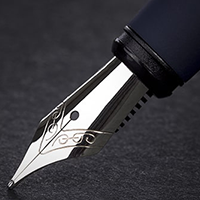
With more innovative designs and styles, the number of patents and production of fountain pens globally substantially rose
1888
First Ballpoint Pen by John J. Loud

John J. Loud invents the first ballpoint pen, but its flawed ink led to leaks and uneven flow. However, by 1900, the concept gained popularity worldwide, reaching the then-British colony of India
1901-1920
Ballpoint Pen in India
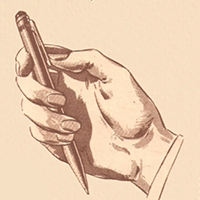
Colonial India had no choice but to rely on imported “Biro” brand ballpoint pens. For nearly two decades, these writing tools were treated as luxury instruments and a sign of aristocracy.
1921
Importance of Ball Pen since Swadeshi movement
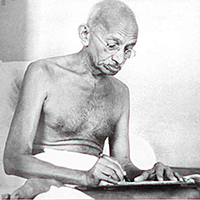
With the Swadeshi movement led by Mahatma Gandhi gaining momentum, he emphasized the importance of self-reliance and independence from foreign goods. This led to one of Mahatma Gandhi’s visionary ideas: to promote the indigenous manufacturing of ballpoint pens as a symbol of self-sufficiency and economic autonomy for India
1922-1929
Hurdles of Producing Pen before Indian Independence

In pre-independence India, efforts to establish indigenous pen manufacturing were hindered by bureaucratic hurdles and red tape. This made it difficult for entrepreneurs and businesses to navigate the regulatory landscape and set up manufacturing facilities for pen production
1930
KV Ratnam’s Revolution
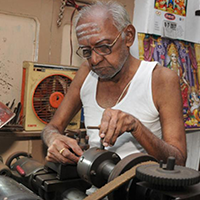
There was growing interest in fountain pens, such as the “Lakshmi” designed by Dr. Radhika Nath and the “Ratnam” created by the Ratnam brothers, particularly in the Indian market
1947
Indian Independence Movement

The Indian Independence movement sparked a renewed push for domestic pen production, leading to the manufacturing of a wide range of writing instruments, including fountain pens and ballpoint pens, within the country
1948-1951
Challenges for Indian Domestic Pen Manufacturers
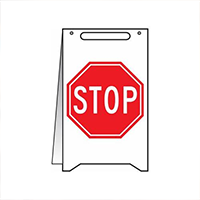
Domestic pen manufacturers suffered from severe bureaucratic challenges after independence and had limited access to advanced technology. These factors hindered the industry’s ability to modernize and compete effectively in the global market
1952
Entry of Pilot Pens in India

Pilot Pen Company establishes its Indian subsidiary, marking the entry of foreign pen companies into the market
1962
India’s First Ball Pen Manufacturing Unit

Dhirajlal Joshi partnered with Formulabs Inc. (USA) to establish India’s first ballpoint pen manufacturing unit, marking a significant turning point in the country’s manufacturing industry. This partnership is expected to bring cutting-edge technology and expertise to India, contributing to the growth and development of the domestic ballpoint pen production sector.
1963-1970
Rise of Indian Ballpoint Pen Manufacturing
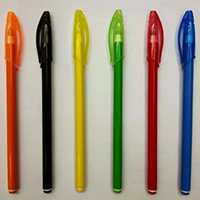
The market sees a rise in Indian ballpoint pen manufacturers, with a growing focus on affordability and practicality. Direct-fill pens emerge in India, offering a refillable and economical alternative to disposable ballpoint pens
Late 1980
Introduction of Gel Pens in India
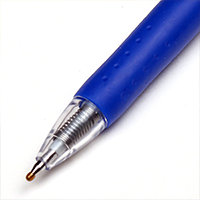
Gel pens are introduced in India, gaining popularity for their smooth writing experience and vibrant ink colors
Early 1990
Introducing New Design and Ink Technology
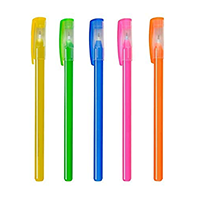
Direct-fill pen manufacturers like Cello and Luxor refine their designs and ink technology, solidifying their dominance in the Indian market. These advancements lead to smoother writing and a wider range of ink colors for direct-fill pens
Mid 1990
Creating Brand Presence in the Indian Pen Market

Major Indian ballpoint pen brands, like Pilot and Reynolds, establish a strong presence in the market
Early 2000
Advanced Technology for Ballpoint Pen

Ballpoint pen technology advances in India, producing smoother writing and longer-lasting pens. This innovation helps Indian manufacturers compete more effectively with foreign brands.
Mid 2000
Advanced Thinking and Technology by Indian Manufacturers
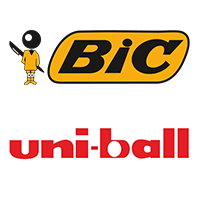
Increased competition from established foreign brands like BIC and Uniball pushes Indian ballpoint pen manufacturers to innovate, resulting in a wider variety of colors, designs, and functionalities offered by Indian companies
Late 2000
Smoother-Flowing Inks and Finer Tips in Gel Pens
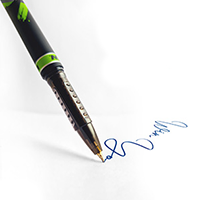
Gel pen technology advances in India, with manufacturers introducing smoother-flowing inks and finer tips for a more premium writing experience
Early 2010
Economic Design Comfort Writing

The focus on ergonomic design increased in the Indian pen market, with both ballpoint and gel pen manufacturers introducing pens designed for comfort and reduced hand strain during extended writing sessions
Mid 2010
Gel Pens and Artistic Uses
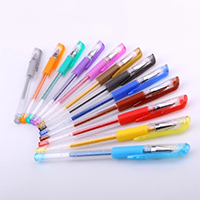
Gel pens gain popularity for artistic uses due to their vibrant colors and smooth writing on various surfaces
Present
India, the Leading Pen Manufacturing Hub

The Indian pen market thrives at INR 78 billion, with direct-fill pens still dominating at 68%. Gel pens are popular, particularly for everyday writing and artistic endeavors. Ballpoint pen technology continues to improve, offering smooth writing and affordability
Get in touch with us for an instant quote!
Request Quote
